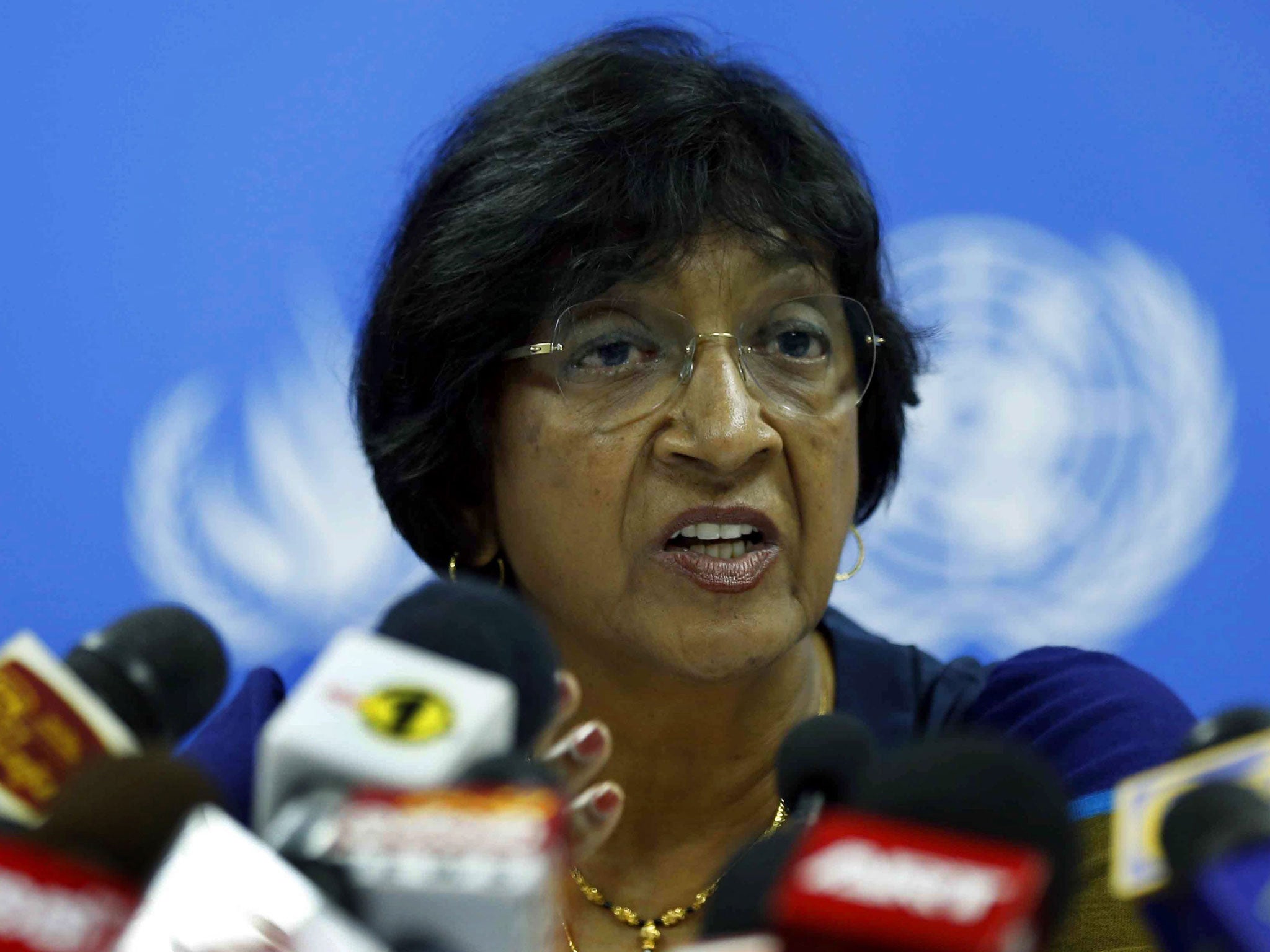Sri Lanka snubs UN as it bids for more trade links with the UK
Criticism by Human Right Commissioner was ‘jaundiced’, says Foreign Minister

Your support helps us to tell the story
From reproductive rights to climate change to Big Tech, The Independent is on the ground when the story is developing. Whether it's investigating the financials of Elon Musk's pro-Trump PAC or producing our latest documentary, 'The A Word', which shines a light on the American women fighting for reproductive rights, we know how important it is to parse out the facts from the messaging.
At such a critical moment in US history, we need reporters on the ground. Your donation allows us to keep sending journalists to speak to both sides of the story.
The Independent is trusted by Americans across the entire political spectrum. And unlike many other quality news outlets, we choose not to lock Americans out of our reporting and analysis with paywalls. We believe quality journalism should be available to everyone, paid for by those who can afford it.
Your support makes all the difference.The Sri Lankan government today snubbed the United Nations and made a direct appeal to British business to help rebuild the country in the face of damning criticisms of its human rights record as it emerges from 26 years of civil war.
Stung by a report by the UN’s Human Rights Commissioner Navi Pillay that accused it of increasing authoritarianism, the Sri Lankan government said it was looking to build business links with Britain as David Cameron prepares to visit the country later this year for the Commonwealth Heads of Government meeting.
Canada has criticised Sri Lanka’s hosting of the summit because of the regime’s conduct of the war and continuing rights’ violations, but Mr Cameron has decided that travelling to the country will focus attention on the rights issue in the country. The Prince of Wales is also due to attend the meeting as the representative of the Queen.
Ms Pillay conducted a week-long visit in August last month after the government promised her access to former war zones but said that the Sri Lankans who came to meet her were harassed and intimidated by security forces.
Speaking in London on Monday, the country’s Foreign Minister, Gamini Lakshman Peiris, said that the UN envoy had failed to give them details of the harassment so they could investigate. He claimed that she had a jaundiced view of the country.
However, he criticised the “deplorable” comment by a fellow government minister who said that he would marry Ms Pillay to keep her on the island, and promote a favourable view of the island nation.
Officials highlighted the increasing roles played in Sri Lanka by companies such as British Airways and HSBC and said that the country represented a potential lucrative area of investment for UK businesses.
But rights groups said they were concerned that profits were being put above principles and expressed concern over links being forged between governments.
The Sri Lankan army defeated Tamil separatist rebels in 2009 but the authorities have come under pressure to investigate killings and disappearances in the final stage of the conflict that left at least 100,000 dead.
The authorities said they had nothing to hide. “What we find very distressing about the tone and the substance of her statements is a total lack of balance and fairness,” said Mr Peiris.
The Sri Lankan government claimed that Ms Pillay had downplayed significant infrastructure building in the Tamil areas in the north. “We need to remember that this was a conflict that went on for 30 years. The government and people of Sri Lanka had just four years to deal with those very complex and challenging problems,” he said.
“She’s looked at Sri Lanka’s situation through jaundiced eyes and we found that very strongly objectionable.”
Ms Pillay is the most senior UN official to visit the north of the country since 2009 and she warned that surveillance and harassment appeared to be getting worse in Sri Lanka. She said it was a country where “critical voices are quite often attacked or even permanently silenced”.
Polly Truscott, of Amnesty International, said the rights violations remained critically high, with the government showing no will to account for past crimes. “The reprisals against those she [Ms Pillay] met, doesn’t bode well for the Commonwealth summit set for November in Colombo. The government must stop its attacks on Sri Lankan society,” she said.
Join our commenting forum
Join thought-provoking conversations, follow other Independent readers and see their replies
Comments